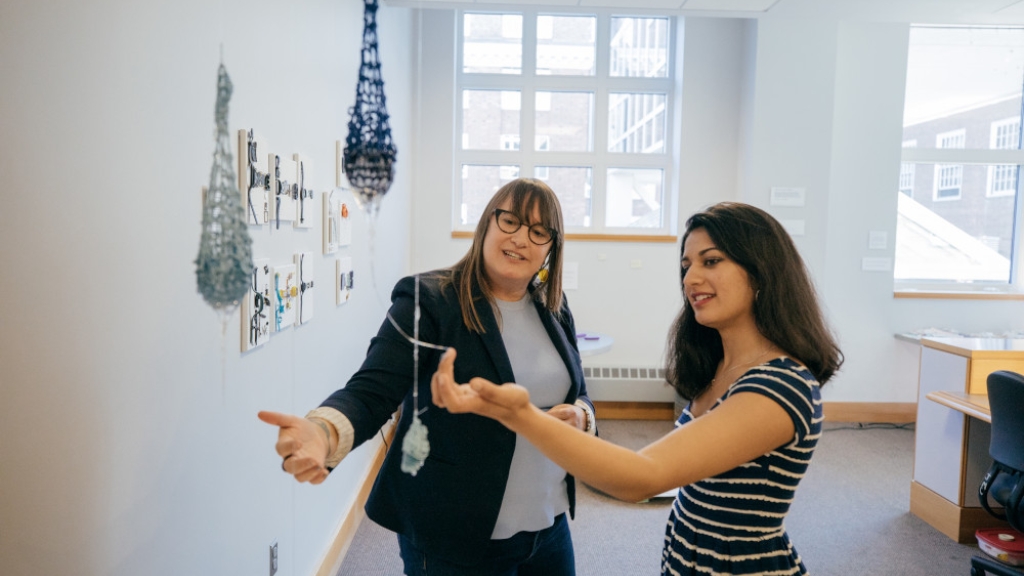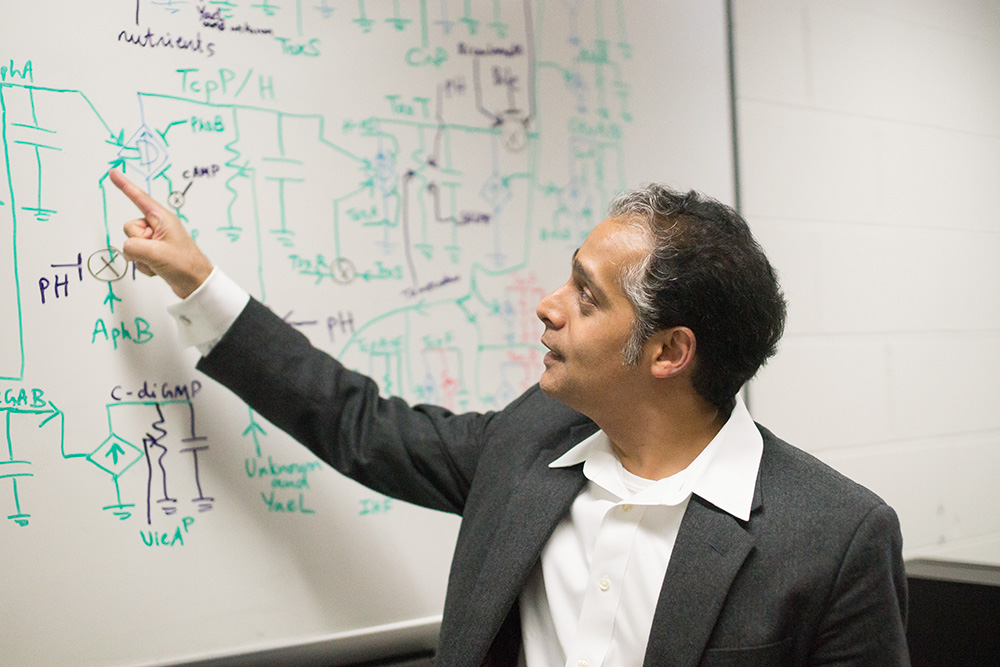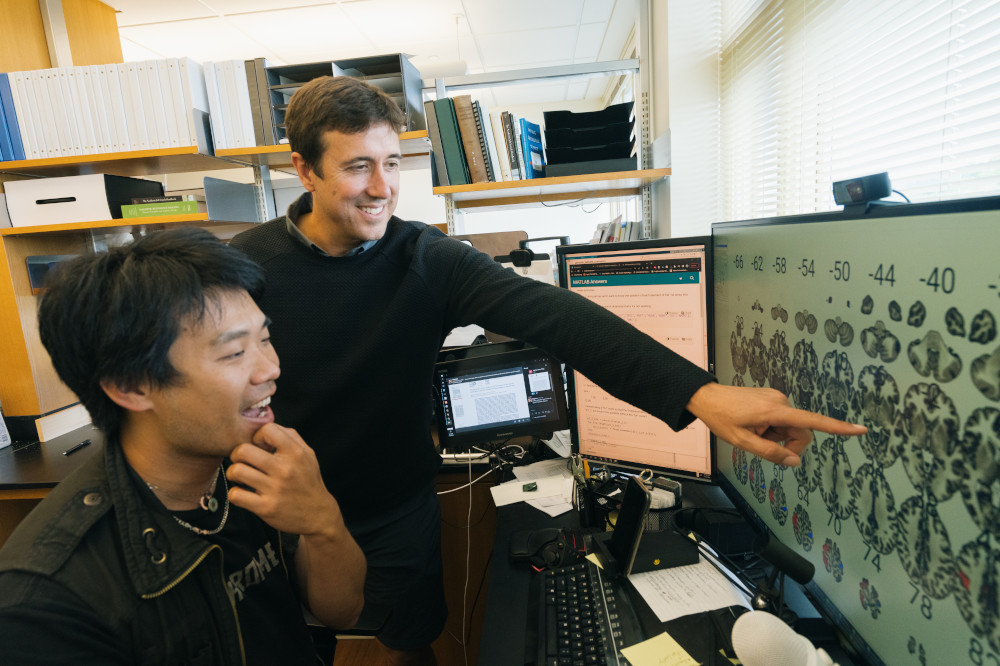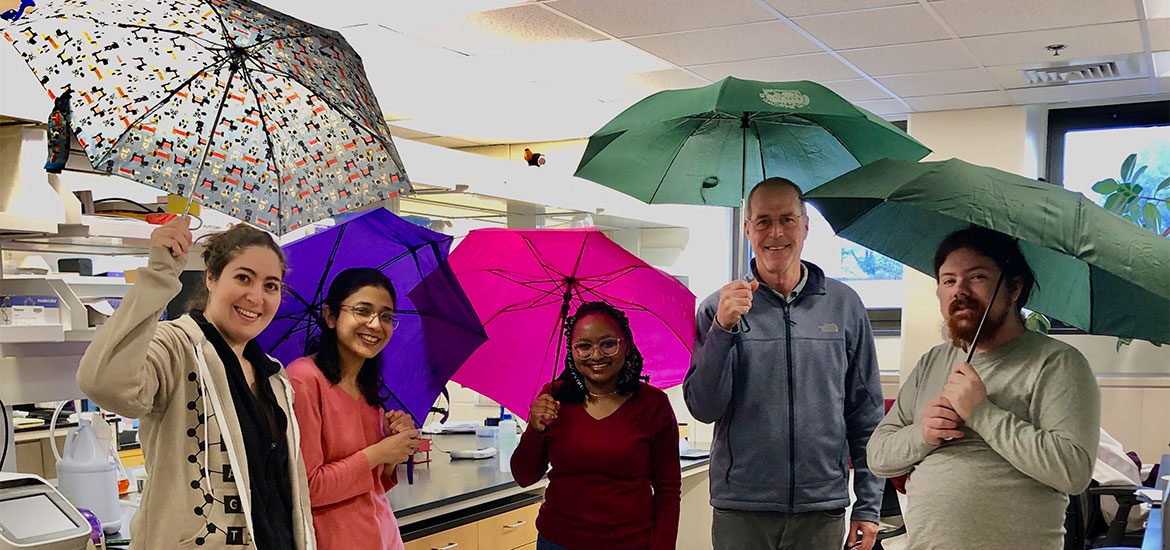Academic Clusters
Through faculty collaboration and targeted hiring, academic clusters provide the critical mass and spectrum of expertise necessary to shape and advance the understanding of complex problems, emerging issues, and future societal challenges. By bringing together diverse and multi-disciplinary faculty teams, these cohorts of scholars focus on new intellectual themes and questions that cut across disciplines, departments, and schools.

Jacqueline Wernimont, Distinguished Chair of the Digital Humanities and Social Engagement cluster speaks with a student in the Social Justice Lab.
Cluster themes provide the basis for new courses and curricula as well as new research opportunities, drawing on existing strengths and emerging areas of discovery to establish points of distinction, invigorating intellectual engagement and enhancing Dartmouth's impact in the world.



